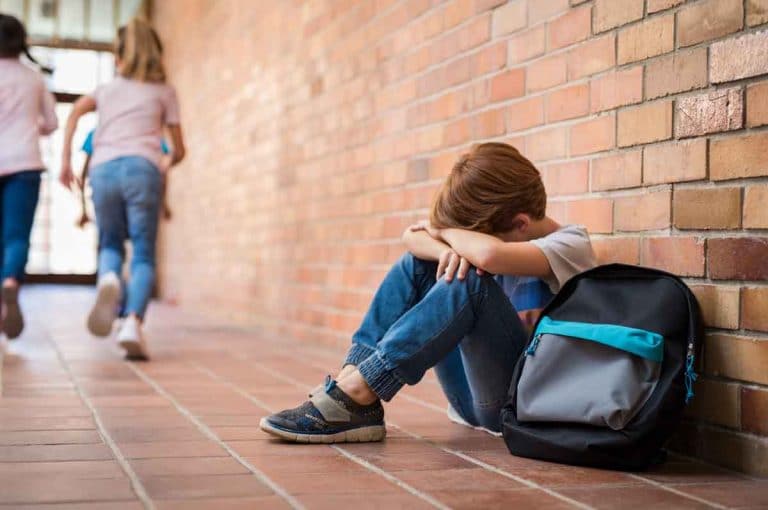You want your child to have the best possible start in life, right? Then there are loads of ways you can support their learning at home, from reading to them daily to playing games with them. Children need to be engaged in learning. It helps them to develop as well as foster their creativity. The best way for parents to support their child’s learning is through play. This article will take you through 10 of the best activities for kids at home you can do to support your child’s learning.
In This Article
1. Painting
Painting is great for almost any age. It is one of these great activities that not only helps your child develop fine motor skills but also helps them build a strong visual understanding of the world around them. It is also a great way to pass the time while learning and enhancing the imagination. Whether your childer are painting trees, houses, cars or anything else they can get their hands on paint they usually end up liking.
2. Reading Books
Reading books is a great way to boost your child’s learning. It provides both hands-on practice and provides transferable knowledge. Reading to your child can help build their awareness of language and help them develop a language comprehension skill. The best part about reading books at home is that you can do it any time! Simultaneously make sure your kid has a wide variety of books to choose from and all of these books help to develop the skills your child needs to succeed in school.
3. Learn Phonics
If you are looking for educational activities for toddlers, you can try teaching them phonics. Phonics is an important part of primary and secondary school education as it helps children form basic words and understanding numbers. It plays a vital role in literacy because it helps children develop mental representations of letters and sounds. This early learning helps develop the skills required for reading and writing later in life.
4. Playing LEGO
Imagine the creativity and technology you can build with LEGOs at home. There is something about building with plastic that stimulates the imagination and boosts mental health. The difficulty level of this maze game becomes sophisticated depending n the age of the child. The best part is that this game does not require any screen time for kids. Al you have to do is set up a simple maze for kids to solve.
5. Writing
Writing is one of the best book recommendations most parents make, and it can be an excellent learning activity for kids at home to do. You can keep your kids engaged in tracing activities. Help them develop that skill with an education that goes beyond pencil to paper. Whether it’s academic writing, creative writing, or even letter writing, the basic principles of good writing apply. If your child is already practicing his writing skills in class, you can encourage him to have additional practice at home by engaging him in activities that boost his vocabulary and sentence structures.
6. Activities with Play-Doh
Playing with Play-Doh is an excellent way to develop your baby’s creativity and physical work abilities. It is one of the best at-home learning activities. For more younger kids you can take the help of Play-Doh and make shapes of letters or numbers to teach them. Ask them to recognize the shapes. Play-doh offers a great way for the child to interact and learn while having fun at home. Moreover, Play-Doh gives kids an opportunity to express their creative minds. It’s also a great manipulative material for learning fine motor skills.
7. Counting Games
Counting is one of the crucial first steps to learning mathematics. Young kids can play many counting games using their fingers or household items to practice counting. A very basic form of the game can be collecting multiple objects and then asking kids to count them. To keep the kids engaged make use of their favorite toys or stationery item and ask them to count. Playing these games regularly will help your child to learn the value of numbers as they enjoy themselves in the meantime.
8. Doing Science Experiments
Homemade science experiments are wonderful opportunities for parents to pass on their love of science and help children build an interest in learning. This one of the favorite activities for kids at home. Parents can also use these experiments as a way to give their children additional experiences, showing them we live in a world full of wonder. You can use them to spark their kids’ interest in science, and help them develop a sense of wonder and curiosity about the world around them.
9. Treasure Hunt
If you’re looking for something that can support your child’s learning then you have to try treasure hunt games with kids. This game is easy to play and even you can enjoy playing it with kids. All you have to do is to hide few things in your backyard, especially the ones that your kid likes. Now draw a map to provide directions for finding them. Simply ask the kid to follow the map and find out hidden items. You can play this game vice-versa as well. Ask your kids to hide things and make a map for you to find them out.
10. Color Identification Games
Did you know that color identification games are an easy way to stimulate the brain and teach children to identify colors? Playing color identification games with kids is a great way to help your child learn about different colors. It is an effective activity for both kids and adults because you are challenging your kids mentally. Many games and activities are involved in teaching color recognition to kids. Not only that, it’s a way to help improve memory ability, attention span, and cognitive development; they’re also an engaging way to bond with your child and have fun!
Conclusion:
There are a lot of activities that you can do at home to support your child’s learning. The best learning activity for kids at home are the ones that have a purpose and are meaningful. The most enjoyable part is, you can make these activities fun for your children and at the same time, help them discover something new. A good activity includes hands-on learning and gets your children thinking. You can opt for any of the above-given activities for kids at home to help them develop a sense of security, self-confidence, and to encourage learning.










